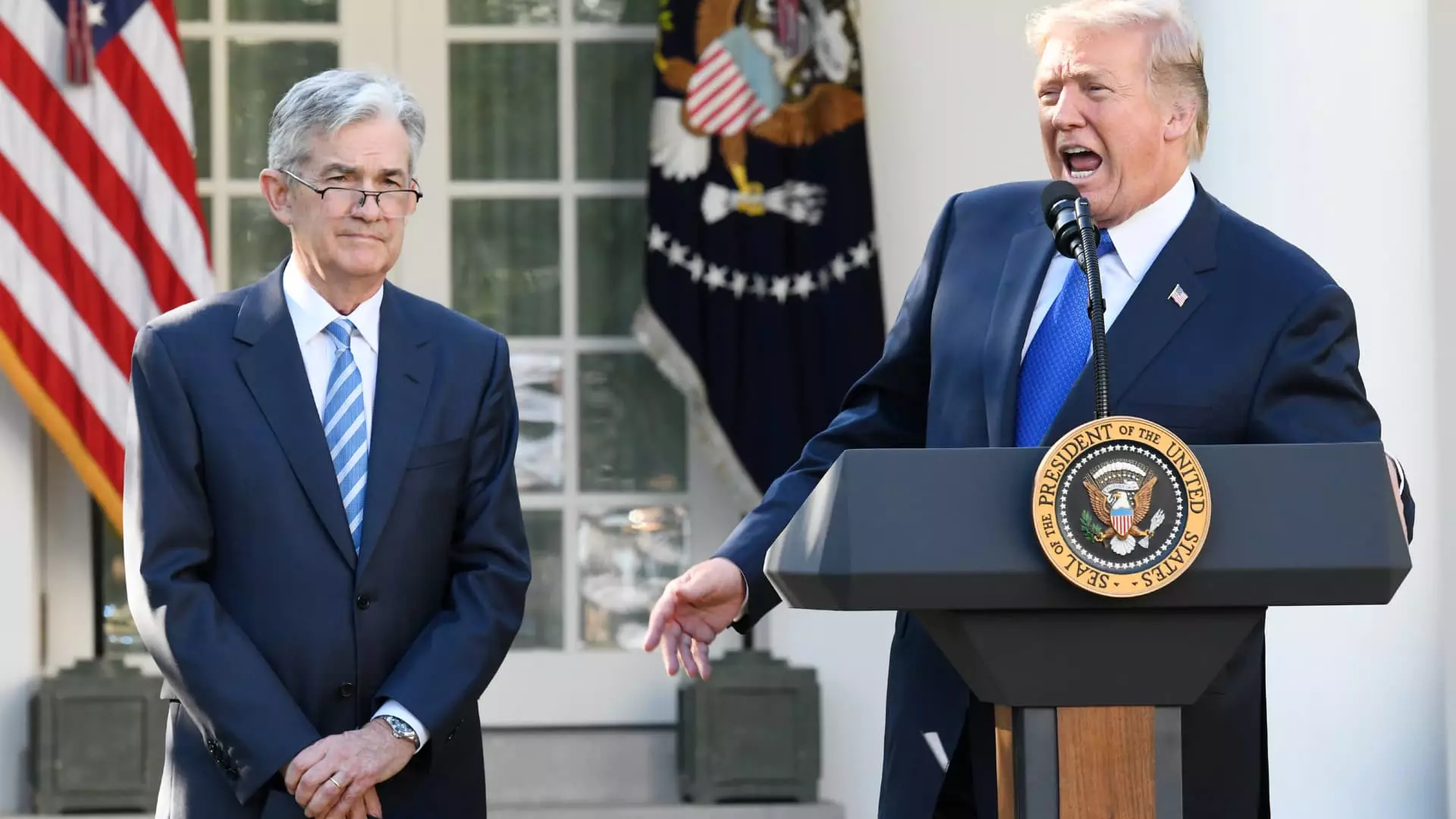In a striking display of economic bravado, former President Donald Trump has once again taken to social media to urge Federal Reserve Chairman Jerome Powell to enact drastic interest rate cuts, specifically suggesting a full percentage point. This comes in light of recent job reports that exceeded expectations—139,000 new nonfarm payrolls rising past Dow Jones estimates of 125,000. The irony of demanding aggressive monetary easing while simultaneously claiming the U.S. economy is “doing great” cannot be overlooked. It exposes a curious contradiction that raises questions about Trump’s grasp on economic realities or perhaps his motives amid a politically charged environment.
Trump’s post, laced with characteristic bravado, called for “Rocket Fuel” interest rates. The terminology itself reflects a kind of hyperbolic enthusiasm that often characterizes his communication. This latest demand not only reflects a consistent behavior pattern—hectoring Powell about interest rates—but also shines a light on his deep-seated belief that the Fed’s policies are inherently flawed. However, this fervor draws attention to the delicate balancing act that central banks must perform, where the pressures of political figures and market realities can create a conflicting swirl of pressure.
A Misguided Sense of Urgency
Many observers would agree that Trump’s demand for immediate and significant cuts seems misplaced, particularly given that recent economic data appears to hold steady. The argument that other foreign entities have lowered rates while the U.S. stands firm adds another layer of complexity. Yes, the European Central Bank (ECB) has indeed lowered its rate to mitigate faltering growth and inflation, yet those decisions were contextualized within different economic landscapes. The U.S. economy is not Europe’s, and simplifying these situations into a competition between countries is fundamentally flawed.
Moreover, Trump’s incessant lamentations about a supposed “disaster” at the Federal Reserve under Powell’s leadership hardly align with prevailing economic indicators. Given that the Dow has risen substantially during Biden’s presidency—contrary to Trump’s rhetoric—his appeals for dramatic measures come off as alarmist rather than prudent. Indeed, the historical context reveals that the last time a single rate cut of one full percentage point occurred was in March 2020, to stave off economic collapse from the Covid-19 pandemic.
An Economic Risk in the Making
Trump persists in insisting that lower borrowing costs would benefit the country immensely, but this approach glosses over the myriad complexities involved in fiscal policy. Creating a false sense of urgency intersects dangerously with economic fundamentals that logically dictate rate stability. Lowering rates indiscriminately can trigger a wave of inflation which, as some policymakers are right to be concerned about, might lead to a more complex financial landscape.
His assertion that cuts could be reversed if inflation should rear its head belies a cavalier stance that suggests interest rates are simply levers to be pulled. This misunderstanding underestimates the intrinsic link between global market dynamics and inflationary pressures, which cannot simply be wished away or rapidly adjusted without consequences.
Additionally, the shift in trader sentiment—from expecting a rate cut by September to only a 22% anticipated chance of seeing meaningful reductions by the end of 2025—highlights an important point: Wall Street thrives on stability. The very instability that Trump’s rhetoric invokes could have lasting ramifications—not only for investment but for the very fabric of economic confidence that sustains markets.
Echoes of Political Strategy
What lies beneath Trump’s consistent drumbeat for interest rate cuts seems deeply interwoven with his political strategy rather than grounded in economics. By blaming Powell for the purported woes of the economy, Trump finds a readily accessible scapegoat for discontent that might otherwise be directed at his administration. In this light, his calls for ‘Rocket Fuel’ are less about sound economic policy and more about reinforcing his narrative.
As we dissect this interplay, it becomes increasingly clear that a center-wing liberal perspective emphasizes the importance of responsible governance. The ability to temper rhetoric with reason cannot be overstated. Economic policymaking demands foresight, pragmatism, and a nuanced understanding of the multifaceted dynamics at play. The American economy deserves better than simplistic solutions born from political posturing.


Leave a Reply